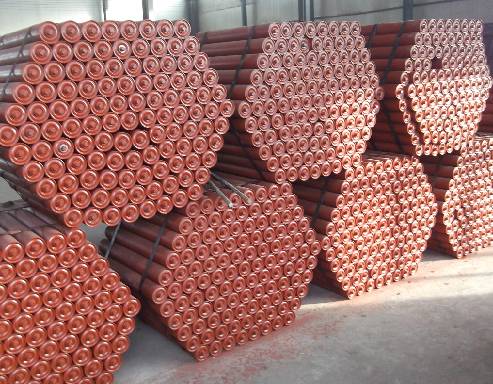 Afrikaans
Afrikaans  Albanian
Albanian  Amharic
Amharic  Arabic
Arabic  Armenian
Armenian  Azerbaijani
Azerbaijani  Basque
Basque  Belarusian
Belarusian  Bengali
Bengali  Bosnian
Bosnian  Bulgarian
Bulgarian  Catalan
Catalan  Cebuano
Cebuano  Corsican
Corsican  Croatian
Croatian  Czech
Czech  Danish
Danish  Dutch
Dutch  English
English  Esperanto
Esperanto  Estonian
Estonian  Finnish
Finnish  French
French  Frisian
Frisian  Galician
Galician  Georgian
Georgian  German
German  Greek
Greek  Gujarati
Gujarati  Haitian Creole
Haitian Creole  hausa
hausa  hawaiian
hawaiian  Hebrew
Hebrew  Hindi
Hindi  Miao
Miao  Hungarian
Hungarian  Icelandic
Icelandic  igbo
igbo  Indonesian
Indonesian  irish
irish  Italian
Italian  Japanese
Japanese  Javanese
Javanese  Kannada
Kannada  kazakh
kazakh  Khmer
Khmer  Rwandese
Rwandese  Korean
Korean  Kurdish
Kurdish  Kyrgyz
Kyrgyz  Lao
Lao  Latin
Latin  Latvian
Latvian  Lithuanian
Lithuanian  Luxembourgish
Luxembourgish  Macedonian
Macedonian  Malgashi
Malgashi  Malay
Malay  Malayalam
Malayalam  Maltese
Maltese  Maori
Maori  Marathi
Marathi  Mongolian
Mongolian  Myanmar
Myanmar  Nepali
Nepali  Norwegian
Norwegian  Norwegian
Norwegian  Occitan
Occitan  Pashto
Pashto  Persian
Persian  Polish
Polish  Portuguese
Portuguese  Punjabi
Punjabi  Romanian
Romanian  Russian
Russian  Samoan
Samoan  Scottish Gaelic
Scottish Gaelic  Serbian
Serbian  Sesotho
Sesotho  Shona
Shona  Sindhi
Sindhi  Sinhala
Sinhala  Slovak
Slovak  Slovenian
Slovenian  Somali
Somali  Spanish
Spanish  Sundanese
Sundanese  Swahili
Swahili  Swedish
Swedish  Tagalog
Tagalog  Tajik
Tajik  Tamil
Tamil  Tatar
Tatar  Telugu
Telugu  Thai
Thai  Turkish
Turkish  Turkmen
Turkmen  Ukrainian
Ukrainian  Urdu
Urdu  Uighur
Uighur  Uzbek
Uzbek  Vietnamese
Vietnamese  Welsh
Welsh  Bantu
Bantu  Yiddish
Yiddish  Yoruba
Yoruba  Zulu
Zulu Optimizing Conveyor Systems with Superior Troughing Idlers for Enhanced Efficiency
Understanding Superior Troughing Idlers Enhancing Conveyor Efficiency
In the realm of material handling and transportation, conveyors play a crucial role in the efficiency and productivity of various industries, including mining, agriculture, and manufacturing. One essential component in conveyor systems is the idler, which supports the conveyor belt, ensures smooth operation, and minimizes wear and tear. Among the various types of idlers available on the market, superior troughing idlers stand out due to their unique design and functionality.
What Are Superior Troughing Idlers?
Superior troughing idlers are a type of conveyor idler that features a three-roll design. The rolls are positioned in a trough shape, which allows for better support of the conveyor belt and the material being transported. This design not only enhances the belt's stability but also prevents spillage, ensuring that materials are contained within the belt's confines.
The primary function of troughing idlers is to provide a strong support system for the belt, enabling it to efficiently transport bulk materials. By arranging the rolls in a trough shape, superior troughing idlers distribute the weight of the load evenly across the belt, reducing the risks associated with belt sagging and misalignment. This configuration is critical for maintaining the operational integrity of conveyor systems, especially in heavy-duty applications.
Key Advantages of Superior Troughing Idlers
1. Enhanced Material Containment The trough shape of superior idlers ensures that materials are contained within the belt's edges. This is particularly vital in applications involving loose or granular materials, where spillage can lead to loss of materials and increased cleanup costs.
2. Reduced Wear and Tear By providing a stable and evenly distributed support structure, superior troughing idlers help minimize the friction between the belt and the idlers. This reduction in friction not only prolongs the life of the conveyor belt but also lowers maintenance costs over time.
superior troughing idlers

3. Improved Load Capacity The robust design of superior troughing idlers allows them to handle increased load capacities compared to standard idlers. This capability makes them ideal for heavy-duty applications where transporting large volumes of materials is vital.
4. Versatility Superior troughing idlers are versatile and can be used in various conveyor systems, including those that operate in extreme conditions. Whether in dusty environments, high-moisture conditions, or at steep inclines, these idlers perform efficiently, ensuring smooth operations.
5. Easy Installation and Maintenance With their standardized designs, superior troughing idlers are relatively easy to install and maintain. This ease of installation helps reduce downtime during setup, contributing to overall operational efficiency.
Application Areas
Superior troughing idlers can be found across diverse industrial sectors. In the mining industry, they are crucial for transporting ores and minerals from the extraction site to processing facilities. In agricultural settings, these idlers help move grains, fertilizers, and other bulk materials from one location to another efficiently. Moreover, manufacturing plants utilize superior troughing idlers in assembly lines and material handling processes, where reliable conveyor systems are essential for timely production.
Conclusion
In conclusion, superior troughing idlers play an indispensable role in enhancing the efficiency and reliability of conveyor systems across various industries. Their unique design provides significant advantages, including improved material containment, reduced wear and tear, and increased load capacity, all contributing to the smooth operation of conveyor belts. As industries continue to seek ways to optimize their operations and reduce costs, the implementation of superior troughing idlers offers a practical solution to achieving these goals. Investing in high-quality idlers can significantly improve a facility's efficiency and productivity while minimizing maintenance needs—an essential aspect of modern industrial operations.
-
Trusted Conveyor Solutions from Leading Conveyor Idler Roller ManufacturersNewsJun.27,2025
-
Reliable Return Idler Solutions for Efficient Belt Conveyor SystemsNewsJun.27,2025
-
Precision Conveyor Accessories for Streamlined Material HandlingNewsJun.27,2025
-
High-Quality Belt Conveyor Idler Solutions for Efficient Material HandlingNewsJun.27,2025
-
High-Performance Belt Conveyor Pulleys for Reliable Material HandlingNewsJun.27,2025
-
Enhancing Material Handling EfficiencyNewsJun.27,2025





























